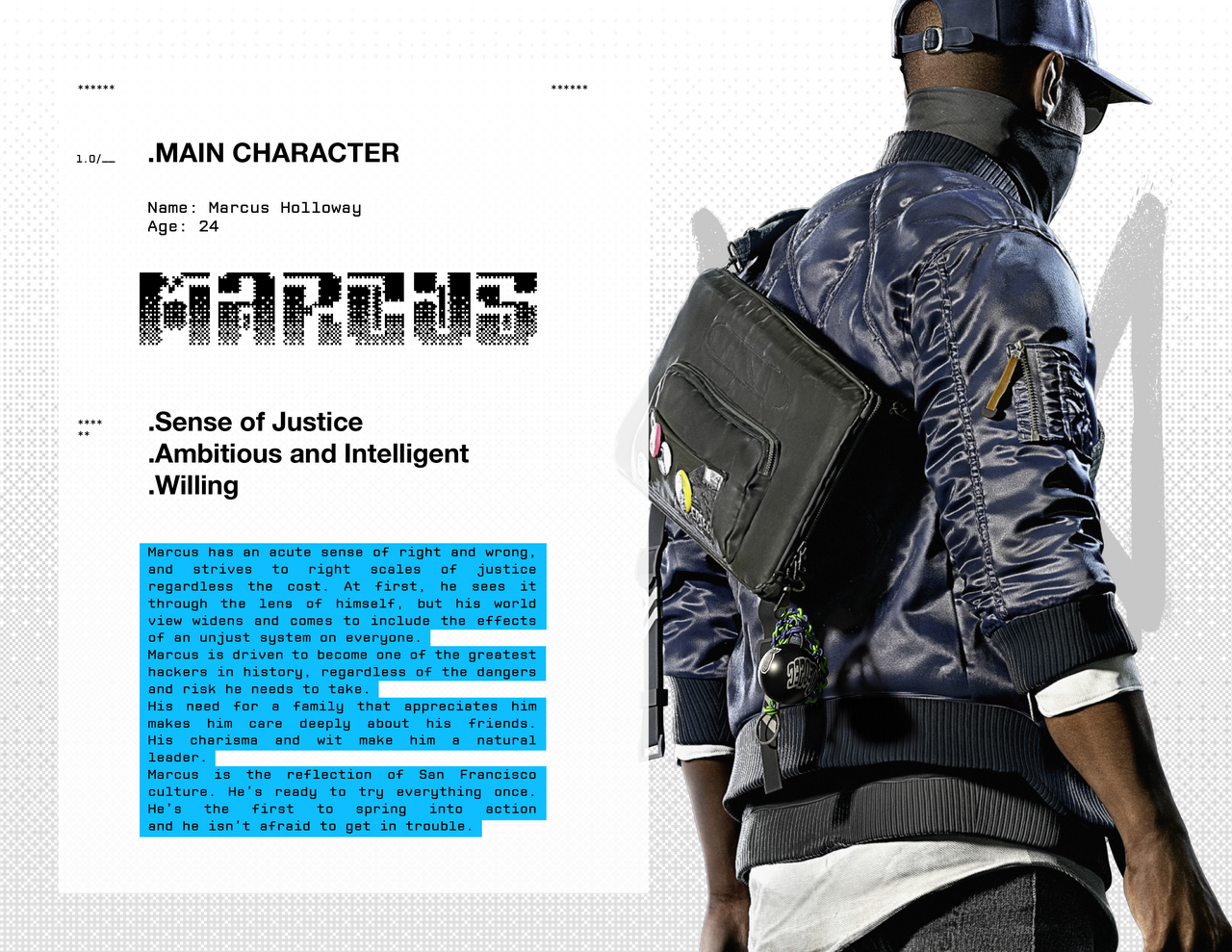
Kenneth Chen
Digital Media PhD Student
Kenneth is a doctoral student in the Digital Media PhD program. In his series “Kenneth on Games” he writes about his passion for games and game design.

Like most of the gaming world, I was super excited about the first Watch Dogs. Well… it didn’t turn out to be a masterpiece, and I fully expected Ubisoft to drop the IP. Imagine how surprised I was when they announced Watch Dogs 2 before even trying to do anything about their bad reputation. But I want to get off the Ubisoft hate train and look for the silver lining. From what we know so far, Watch Dogs 2 starts off with a new character in a new setting, and I honestly think that they’re moving on the right track considering the prequel’s mistakes.
Watch Dogs and Plot-Centric Narrative
Watch Dogs always sold this fantasy of being able to do anything, and they wanted it to be more than just PR talk. The whole theme was that everything is interconnected through digital media, so you had the ultimate sandbox. Listen in on people’s calls, mess up traffic lights, play chess, you name it.
Whether or not they actually achieved that goal is a different topic. But the narrative setup, especially the main character, worked against this whimsical playground feeling and turned the game into a gritty, hard-boiled, linear narrative.

When it comes to Aiden Pearce (the protagonist of the first Watch Dogs), there is truly nothing to say. Bad guys killed his niece and he’s angry so he goes and kills them back. It’s a structure that you would see anywhere, and more often than not it leads to a plot-based narrative setup: one where the main focus is the plot. He goes and kills some bad guys and stumbles on some conspiracies and gets betrayed and has a big final showdown with some cackling villain.
A focused plot-based narrative kind of goes against the original vision. You are not here to be a tunnel-vision killer who only cares about one thing. The whole promise was that you could do anything you wanted, whenever you wanted. But Aiden Pearce doesn’t feel that way. He has no time for dilly-dallying when he’s got people to kill. Half the time, it seems like he hates the idea of having fun.
Plot-based narratives and open world games don’t mix. A good plot wants to be told through a tightly woven format, preferably linear. Many games nowadays feel like the world is just a giant menu, and your character is the cursor you use to select which mission you want to do. Even though this is the best way to tell a plot-based narrative, it undermines your sense of freedom. If Watch Dogs is going to deliver on its promise, it needs a character-based narrative.
Watch Dogs 2 and Character-Centric Narrative

Marcus Holloway immediately has several differences from Aiden. His story does not revolve around a plot. In the past, he had some problems with police, but that is the past and it is used only as a justification for his present abilities. The game isn’t about Marcus getting back at the police who profiled him, it’s about his relationship with DedSec.
And that’s the important part: Marcus doesn’t exist in a vacuum. Everything about him is connected to some other part of WD2‘s world. The new goal of the game isn’t about a personal quest for vengeance, it’s about DedSec rising in notoriety as a group.
Aiden Pearce didn’t care about the other characters around him. He used him to get closer to his end goal. But for Marcus, the other characters are his end goal. Nothing about Marcus’s personal motivations have been revealed, but Ubisoft clearly states that in WD2, “the main goal is to attract more followers from around the Bay Area.”
Now you have a freeform end goal that isn’t closely tied to a specific character’s plot arc. Whatever you want to do to raise your follower count, you can do it. You actually have incentives to play around with the sandbox mechanics that the world offers, as opposed to just following a linear set of missions.
This is even further emphasized through DedSec’s punk hacker attitude. They are basically a fictional 4chan and they really carry a sense of whimsical rebelliousness, as opposed to the solitary serious tone that Aiden had. Watch Dogs has always been described as a high-tech playground, which evokes feelings of childish fun and wanton destruction. Aiden has no idea how to have fun, but DedSec knows how to throw a party.
Imagine executing a massive prank, or exposing a high-ranking mayor’s embarrassing secrets on the internet. Those would be things that simultaneously take advantage of the game’s sandbox nature while also getting you closer to your narrative goal. It seems that DedSec is all about having fun and living life, which is the complete opposite of what Aiden Pearce was doing. This reminds me a lot of the Just Cause approach, where your goal is to raise chaos and you can raise chaos by doing almost anything. Progression-based goals with many paths to completion are a more natural fit for open world games.
Marcus and Aiden are two very different characters, so it makes sense to hope that they will lead two very different games. Yes, we’ve all had hopes for Ubisoft, and yes, we’ve all been burned. As much as everyone likes to hate on them, people only get angry when they’re passionate about something. I would love to see the Watch Dogs promise live up to its fully hyped potential, and I’m sure many others would too.
